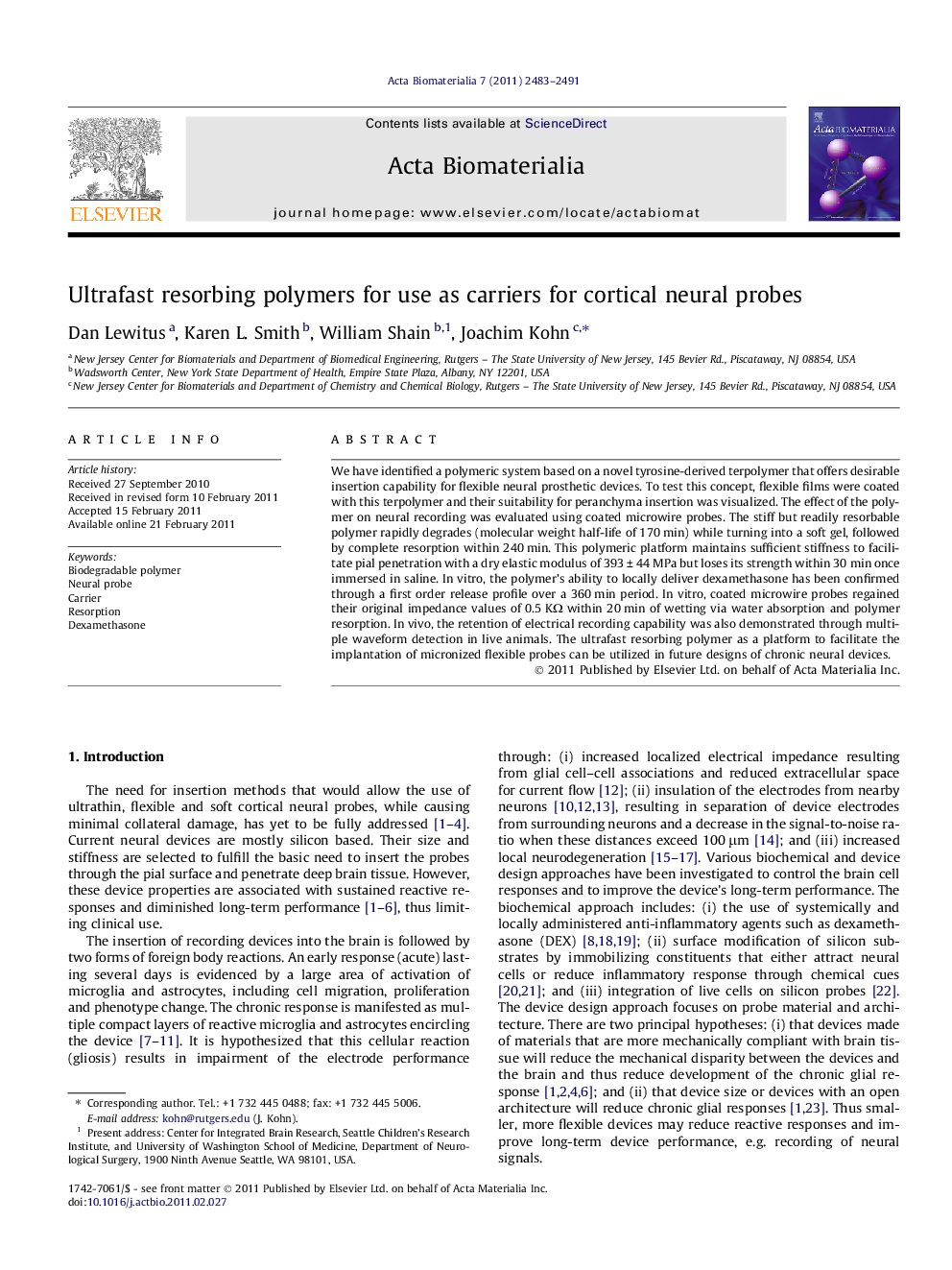| Article ID | Journal | Published Year | Pages | File Type |
|---|---|---|---|---|
| 1355 | Acta Biomaterialia | 2011 | 9 Pages |
We have identified a polymeric system based on a novel tyrosine-derived terpolymer that offers desirable insertion capability for flexible neural prosthetic devices. To test this concept, flexible films were coated with this terpolymer and their suitability for peranchyma insertion was visualized. The effect of the polymer on neural recording was evaluated using coated microwire probes. The stiff but readily resorbable polymer rapidly degrades (molecular weight half-life of 170 min) while turning into a soft gel, followed by complete resorption within 240 min. This polymeric platform maintains sufficient stiffness to facilitate pial penetration with a dry elastic modulus of 393 ± 44 MPa but loses its strength within 30 min once immersed in saline. In vitro, the polymer’s ability to locally deliver dexamethasone has been confirmed through a first order release profile over a 360 min period. In vitro, coated microwire probes regained their original impedance values of 0.5 KΩ within 20 min of wetting via water absorption and polymer resorption. In vivo, the retention of electrical recording capability was also demonstrated through multiple waveform detection in live animals. The ultrafast resorbing polymer as a platform to facilitate the implantation of micronized flexible probes can be utilized in future designs of chronic neural devices.
